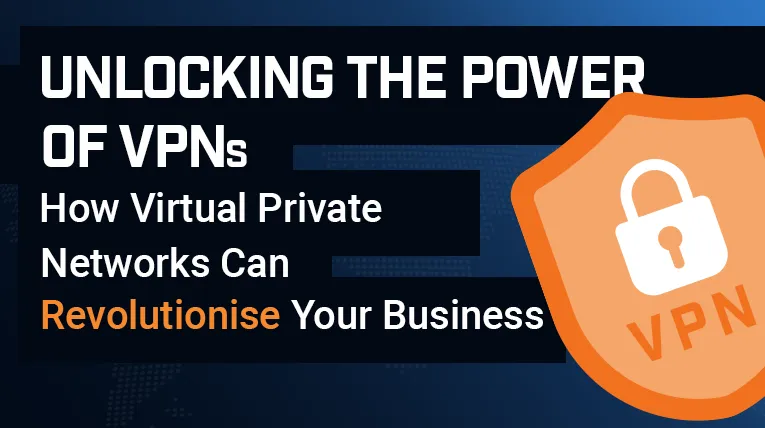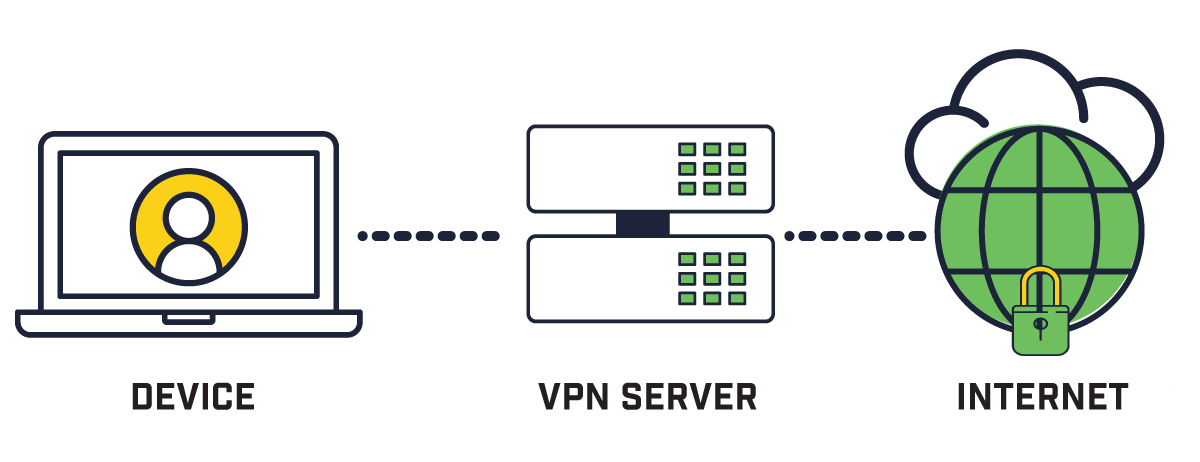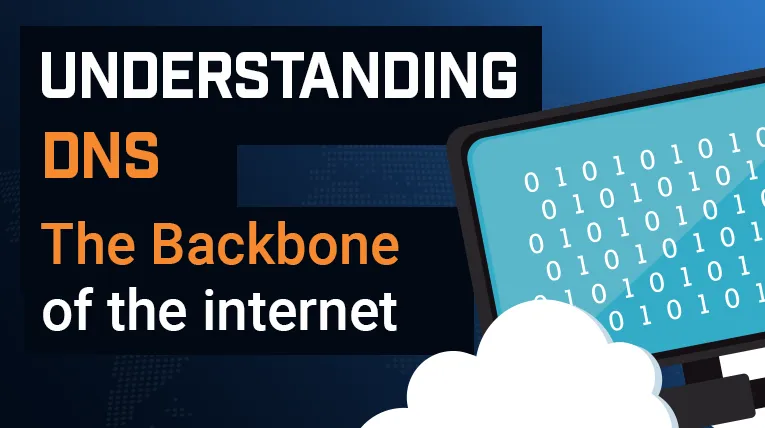Unlocking the Power of VPNs - How Virtual Private Networks Can Revolutionise Your Business
Last Updated: January 10th, 2025 8 min read Servers Australia

In today’s increasingly digital world, safeguarding data and ensuring secure communication channels are paramount for businesses of all sizes. Whether you’re a small business owner or part of a large enterprise, understanding how Virtual Private Networks (VPNs) work and how they can benefit your organisation is essential. In this comprehensive guide, we’ll explore the ins and outs of VPNs, unpack their advantages, and showcase how they can support your business operations and cloud journey.
What is a Virtual Private Network (VPN)?
A Virtual Private Network, or VPN, is a technology designed to create a secure, encrypted connection over the internet or another network. Think of it as a private tunnel that keeps your data safe from prying eyes. When you use a VPN, your internet traffic is routed through secure servers, making it nearly impossible for unauthorised users to intercept or tamper with your information.
VPNs are especially useful for businesses as they enable employees, partners, and remote offices to connect securely to shared resources. By encrypting data and masking the user’s IP address, VPNs ensure confidentiality and privacy for sensitive business operations.
VPNs are especially useful for businesses as they enable employees, partners, and remote offices to connect securely to shared resources.
How Does a VPN Work?
At its core, a VPN creates a secure connection by:
Encrypting Data: Before data leaves your device, it’s encrypted so that only authorised recipients can decode it.
Routing Traffic Through a Server: Data is transmitted through a secure VPN server, shielding it from hackers and other cyber security threats.
Masking Your IP Address: By assigning a new IP address, a VPN hides your real location and protects your identity online.
This combination of encryption, secure routing, and anonymity makes VPNs an essential tool for businesses navigating the digital landscape.

Why Your Business Needs a VPN
For many organisations, the question isn’t whether to use a VPN but why it’s so critical. As businesses embrace remote work, cloud computing, and digital collaboration, ensuring secure access to sensitive information is more important than ever.
Adapting to a Remote Workforce
The rise of remote work has transformed traditional office settings, creating new challenges in maintaining secure and efficient communication. Employees often access company resources from diverse locations and devices, which can expose critical systems to cyber threats. A VPN mitigates this risk by providing a secure gateway for remote access. This ensures employees can work effectively from any location without compromising sensitive data or business operations.
Protecting Business Assets
In a world where data breaches and cyberattacks are increasingly common, businesses must prioritise the protection of their digital assets. Whether it’s financial data, intellectual property, or customer information, the loss or theft of sensitive data can lead to significant financial and reputational damage. A VPN safeguards these assets by encrypting all transmitted data, making it nearly impossible for unauthorised individuals to intercept or misuse the information.
Enhancing Compliance and Regulatory Adherence
Many industries are governed by strict data protection regulations, such as the General Data Protection Regulation (GDPR) or Australia’s Privacy Act. Non-compliance can result in hefty fines and legal consequences. By implementing a VPN, businesses can ensure secure data handling and transmission, aiding compliance with these regulatory requirements and protecting customer trust.
Supporting Digital Collaboration
Modern businesses rely heavily on digital tools and platforms for collaboration. However, this reliance also creates vulnerabilities. Whether sharing files, conducting virtual meetings, or accessing shared databases, every digital interaction is a potential entry point for cyber threats. A VPN fortifies these interactions by establishing secure communication channels, enabling seamless and safe collaboration between teams, partners, and clients.
Enabling Business Continuity
Unforeseen disruptions such as natural disasters, system failures, or global events like pandemics can hinder access to on-site resources. A VPN ensures business continuity by allowing employees to securely access critical systems and data remotely, ensuring operations can continue unhindered even in challenging circumstances.
A VPN ensures business continuity by allowing employees to securely access critical systems and data remotely, ensuring operations can continue unhindered even in challenging circumstances.
Strengthening Trust with Clients and Partners
Businesses that prioritise cybersecurity build stronger trust with their clients and partners. By adopting a VPN, organisations demonstrate their commitment to protecting sensitive information and upholding professional integrity. This not only safeguards existing relationships but also attracts potential clients who value security and reliability.
With these compelling reasons, it’s clear that VPNs are not just a technical upgrade but a strategic investment in the future of your business. They provide the security, flexibility, and reliability needed to navigate today’s digital challenges confidently.
The Benefits and Features of VPNs
Enhanced Security
One of the standout features of VPNs is their robust security protocols. By encrypting data during transmission, VPNs safeguard sensitive information such as financial records, customer data, and intellectual property. This security is crucial for businesses in industries like healthcare, finance, and e-commerce, where data protection is a top priority.
Supporting Flexible Work Environments
VPNs empower employees to work from anywhere without worrying about compromised data. This flexibility not only enhances productivity but also makes businesses more attractive to top talent seeking remote work options.
Cost-Effective Solutions
Traditional methods of connecting multiple offices, such as leased lines or dedicated circuits, can be prohibitively expensive. VPNs offer a cost-effective alternative by leveraging existing internet infrastructure to create secure connections.
Ensuring Privacy and Anonymity
By masking IP addresses, VPNs protect businesses from targeted attacks and unauthorised tracking. This feature is particularly beneficial for organisations dealing with sensitive negotiations or operating in regions with strict internet regulations.
Compatibility with Cloud Services
VPNs are a natural fit for cloud hosting. They provide secure access to cloud-based applications and storage, ensuring that sensitive data remains protected even when shared across multiple platforms.
Types of VPNs for Businesses
Not all VPNs are created equal, and choosing the right type depends on your business needs. Here are the main types:
Site-to-Site VPN
This type connects multiple office locations through secure links, creating a unified network. It’s ideal for businesses with multiple branches that need seamless collaboration.
Remote Access VPN
Perfect for enabling employees to access company resources from remote locations. Remote Access VPNs provide secure connections regardless of where the user is located.
SSL VPN
These user-friendly VPNs offer web-based access to applications and data without requiring specialised software. They’re an excellent option for businesses looking for simplicity and ease of use.
MPLS VPN
For businesses with high-performance requirements, MPLS VPNs offer low-latency, dedicated connections. They’re well-suited for industries that rely on data-intensive applications.
A Customer Story: Securing a Growing Business
The Challenge
An Australian e-commerce business was struggling with ensuring secure access for its rapidly growing remote workforce. Employees frequently needed to access sensitive customer data, and the company faced increasing cybersecurity threats.
The Solution
The company implemented a Remote Access VPN to enable secure connections for its remote team. By encrypting all data and authenticating users, the VPN safeguarded customer information and ensured compliance with data protection regulations.
The Outcome
With the VPN in place, the business experienced a significant drop in security incidents and improved employee productivity. The secure environment also allowed the company to expand its operations without worrying about data breaches.
How VPNs Enhance Your Cloud Journey
VPNs play a crucial role in facilitating secure cloud adoption. By providing encrypted connections between on-premises systems and cloud environments, they ensure that sensitive data remains protected throughout its journey.
Supporting Hybrid Cloud Setups
For businesses utilising hybrid cloud solutions, VPNs offer seamless integration between on-premises and cloud-based systems. This connectivity enhances performance and ensures that data is accessible and secure.
Reducing Latency
VPNs can improve the performance of cloud applications by providing direct, secure pathways for data transmission. This reduction in latency ensures that cloud services run smoothly, even during peak usage.
Technical Elements of VPNs
Encryption
Encryption ensures that data remains confidential during transmission. Advanced encryption standards (AES) are commonly used to provide military-grade protection.
Authentication
VPNs utilise robust authentication methods, such as multi-factor authentication (MFA), to verify users and devices. This prevents unauthorised access to sensitive information.
Tunnelling Protocols
Popular protocols like OpenVPN and IPsec create secure tunnels for data transmission. Each protocol offers unique benefits, and the choice depends on your business’s specific needs.
Setting Up a VPN for Your Business
Implementing a VPN requires careful planning and execution. Here’s an overview of the process:
Choosing the Right Solution
Determine whether you need a managed VPN service or an in-house setup. Consider factors such as scalability, cost, and your team’s technical expertise.
Configuring Servers
Set up VPN servers to handle encrypted connections. Ensure they meet security and performance standards to provide a seamless user experience.
Implementing Authentication
Use strong authentication methods, such as MFA or digital certificates, to secure access. Regularly update credentials to minimise vulnerabilities.
Ongoing Maintenance
Monitor the VPN network for performance and security issues. Regular updates and audits are essential to maintain optimal operation.
Conclusion
VPNs are more than just a cybersecurity tool, they’re a cornerstone of modern business operations. By providing secure, flexible, and cost-effective connectivity, VPNs empower organisations to thrive in an increasingly digital world. Whether you’re enabling remote work, securing sensitive data, or enhancing your cloud journey, a well-implemented VPN can transform your business’s capabilities.
Take the first step towards a secure future by exploring VPN solutions tailored to your needs. With the right technology in place, you can confidently navigate the challenges of the digital age while safeguarding what matters most.



